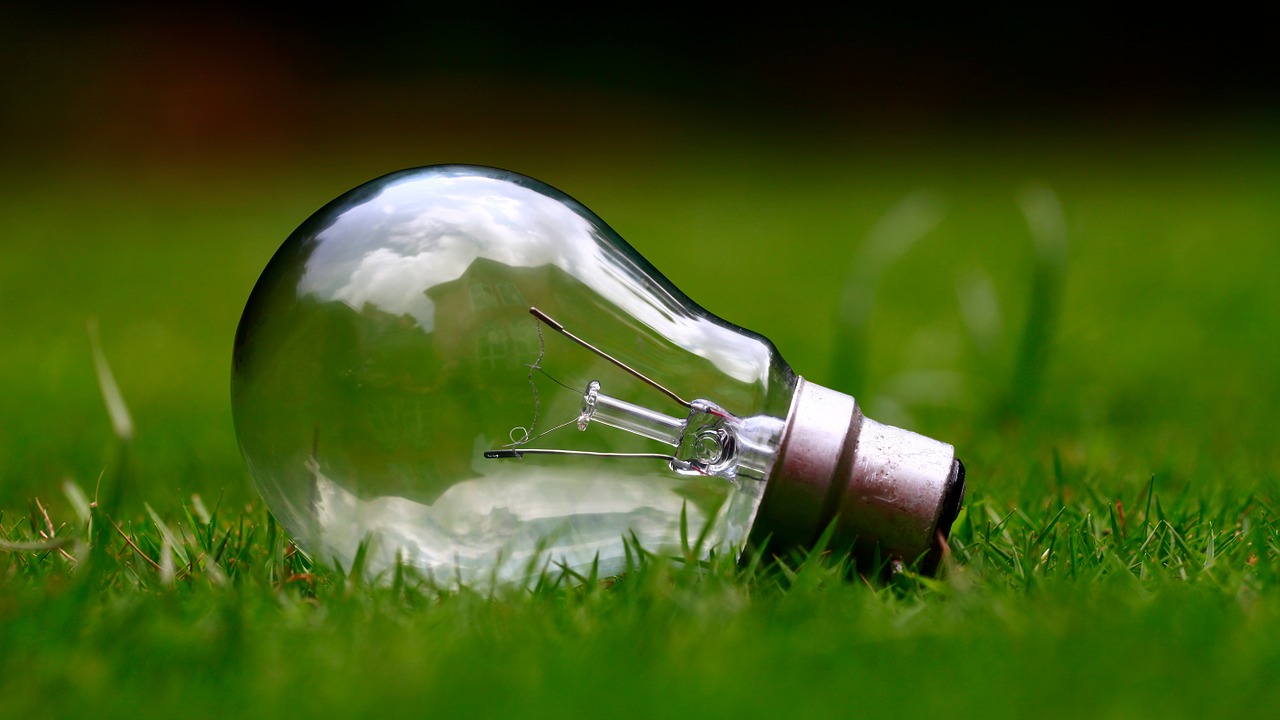With our planet coming under ever-increasing threat from global warming, people like you can help to save it. Small actions in the home, such as switching off appliances and using natural light, can make a big difference. Our 10 energy saving ideas can help you save the environment and also save money. That way, you can feel twice as virtuous!
You can do these energy-saving hacks in every single home, whether you own or rent, and cost you absolutely nothing!
What's Included?
1. Green cooking
I don’t mean you should cook lots of brussels sprouts (unless it’s Christmas dinner). Energy waste often occurs in the kitchen. An easy way to reduce the waste is to put pots and pans on the appropriate hob.
If you have a small pan, use a small ring. If you have a big pan, you guessed it, use a big ring.
Putting a small pan on a large ring wastes lots of heat energy. Trying to heat a big pan on a small ring will take much longer than on a big ring. This means the hob stays switched on for longer and, even worse, you have to wait longer to eat!
2. Use the whole oven
Try to fill up the oven when cooking by making several meals at the same time. This saves energy because you’ll only need to switch the oven on once for the same amount of food. Plus, you’ll save time on food prep for the rest of the week – it’s a win-win.
The oven has several shelves and plenty of space inside, so you may as well use it efficiently, rather than heating the whole area for one little pie or dish!
Another quick energy saving idea: once you switch it off, if you leave the oven door open after cooking you can heat your kitchen for free!
3. Make white goods green
You should always aim to buy the most energy-efficient appliances: ones that are rated A or above. Even if they are slightly more expensive, the long-term savings you make can be considerable.
However, it’s not enough to buy efficient appliances; you need to ensure they run effectively too.
You could have them regularly serviced, but merely cleaning them can also prevent energy from being wasted. Dusting around the back of the fridge and freezer, focusing on the condenser coils, can help make them run more efficiently. If they become clogged up with dust, more energy is needed to run the fridge or freezer.
4. Be smart with your fridge and freezer
Buy a fridge or freezer that’s appropriate for your needs. If you live alone and have a huge, half-empty fridge, energy just gets wasted to keep empty space cool. The empty space also fills with warm air when you open the fridge or freezer door. This means that you’re using still more energy to cool it back down. By keeping a smaller fridge full, it needs to use less energy to stay at the right temperature.
You can also help by defrosting your food in the fridge, as the frozen food will contribute to keeping the fridge cool.
Make sure any food is cool before putting it in the fridge. If you’re putting warm leftovers in there, the fridge has to work extra hard and use more energy to stay at a cool temperature. However, remember not to put food in the fridge if it’s been sitting out at room temperature for more than two hours. It could poison you.
5. Take advantage of good weather
When possible, hang washing out to dry instead of using a tumble dryer. Why use an appliance to dry clothes when the sun and the wind can do it for free! Easy energy saving right there! Though, remember that this is Britain, so you may have to rush to bring the clothes in 23 minutes after hanging them outside.
But even when it does rain, you don’t always need to use the tumble dryer. You can dry your washing on drying racks and place them near the radiator. This way you can stay green while keeping your clothes clean.
6. Help your radiators
If the weather predictably turns bad, don’t dry your clothes directly on the radiator! Putting wet clothes right on top of your radiator prevents it from heating the room, so it has to work even harder to achieve the desired temperature. Instead, consider investing in a clothes horse for energy saving.
For the same reason, don’t put furniture such as sofas in front of a radiator as this can waste energy.
Heat from the radiator can get absorbed by furniture, which stops the heat from spreading through the room. If a room doesn’t seem to ever get warm, rather than turning the heating up, try moving furniture away from radiators to allow the heat to move through the room more effectively.
7. Use your curtains
Curtains aren’t just for shutting when you want some privacy. They can affect the temperature of the room, depending on how warm it is outside and inside.
When it’s hot, closing the curtains can help to keep the room cool, as they stop the sun streaming through and heating the room. If you want the room a little warmer, however, try letting the sun shine in through the window. It’s a green and easy way to reach the desired temperature.
Closing curtains also can keep the house warm in the evening when the exterior temperature drops. Much of a house’s heat loss occurs through windows and doors. Closing the curtains helps with insulation and stops the heat in the house from escaping.
8. Stop the draughts
A lot of heat is lost through the cracks around windows and doors, so the easiest way to limit this heat loss is to keep them shut!
There also several things you can buy to stop this kind of heat loss, including double glazing and strips to fill in gaps around windows. Depending on how far you want to take it, you could even put something over keyholes and letterboxes.
You can also buy or make your own draught excluders. Another idea is to recycle old material, such as clothes or tights. Stuff it with fabric or rice, and place it at the bottom of the doors or windows. You could even get crafty and make them in the shape of animals! If you’re like me and your craft skills are non-existent, you can always buy some.
9. Wash your clothes less
You can save energy by washing clothes less often. Of course, this doesn’t mean you should wear the same underwear for a week! But you definitely should make sure that each time you wash you have a full load, rather than doing several half-full ones.
Also, try doing your washing at a lower temperature, as this saves energy and uses less electricity. Washing at 30 degrees still cleans your clothes effectively, and saves energy as the water doesn’t need to be heated to such a high temperature.
10. Turn your heating down!
Most of us are fully capable of living in a cooler home and having cooler showers. Turning down the thermostat slightly can save both energy and money without making a difference to your comfort levels.
According to the experts at uSwitch, turning down the thermostat by just 1 degree can save around £75 a year! although this figure varies depending on the heating system used and how much you have it switched on already.
And if the house does get a bit chilly, just wear a jumper or use a blanket to keep nice and cosy, instead of putting on the heating!
Credibble offers two fabulous solutions.
If you’re preparing to take a mortgage, never apply until you’ve tried our unique and FREE Credibble Home app. Our smart technology will tell you what you need to fix so you avoid rejection. The app predicts when you will be able to buy, for how much and tracks your month-by-month progress to mortgage success. We’ve even added your own mortgage broker, so you get the best deals available.
More focused on your credit rating? Well, get started for free with Credibble’s 24- Factor Credit Check to truly help you improve your creditworthiness and how lenders view you. (Remember: lenders don’t use your credit score! We’ll show you what lenders look for and how to get your credit report in the best shape possible).
Last updated by Robert Edwards, April 2022









